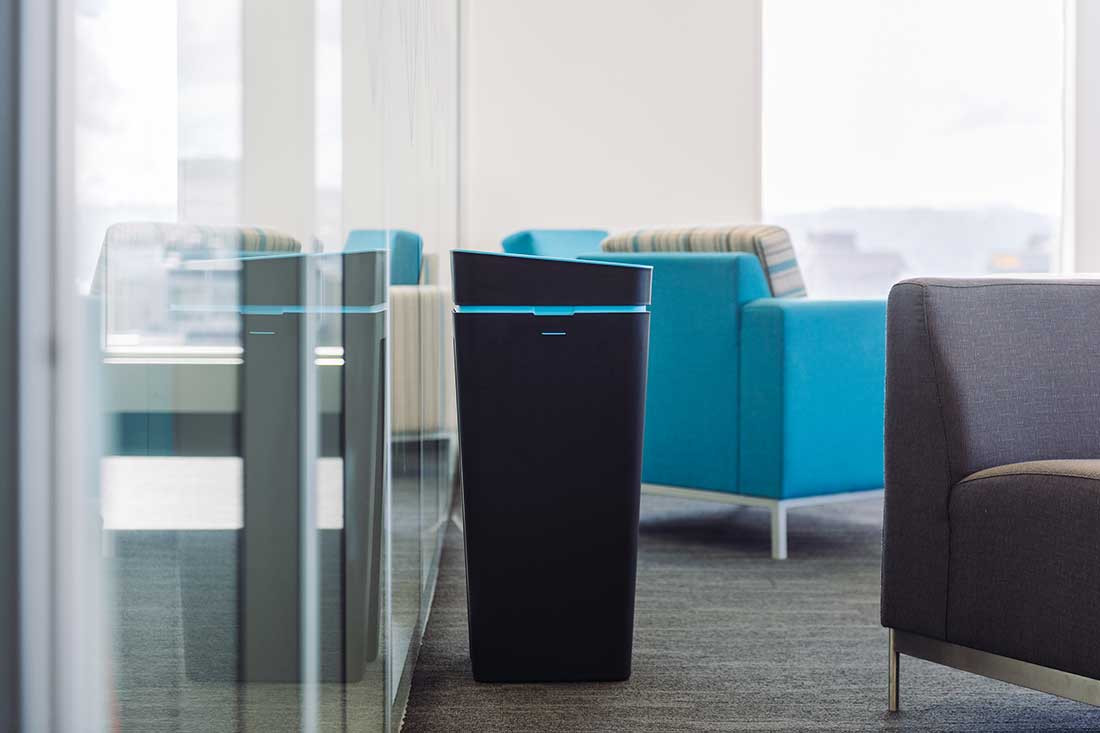Sometimes scrutinised for making recycling bins out of virgin polypropylene – NZ company Method have found success following their considered design process that ensures a long term focus is maintained.
Method recycling bins have been changing the way we see waste management in offices around the world, and in 2019, the brand itself are making strides towards a greener tomorrow. The New Zealand based organisation recently announced that the black components of their bins will now be composed of at least 50% recycled materials.
Method design and manufacture good-looking recycling bins for the modern workplace. Starting in Wellington, they now sell their bins around the world. Helping some of the world’s most influential organisations to recycle more, and waste less.

At its core, Method is driven by a philosophy of waste minimisation, believing in a circular economy of waste, and the introduction of 50% recycled content is a small but important step in the organisation’s journey.
Introducing recycled content to a design process isn’t as easy as it may be perceived. Recycled materials are highly variable by nature, and Method undertook an extensive research and design process to ensure recycling bin durability, life-span and the high-quality finish of the product was maintained.

An example of the recycled material Method uses in its design
The design of the new generation of Method recycling bins saw a priority of ensuring that when incorporating recycled materials the bins are still fully recyclable at the end of their lives, and the materials are able to be used at the same level. The result is an even greener solution to recycling, for the long-term, not the short.
This means that Method’s bins are still as good looking and durable with the recycled content as ever, and importantly at the end of their lives, they can be completely recycled and made into new bins. Capturing recyclables and incorporating them in such a way that they can be recycled indefinitely – this is Method’s philosophy of the circular waste economy in action.

Further, the considered integration of recycled materials into Method’s bins is evidence that manufacturers have the ability to collect and reuse recyclables to make a real difference. Particularly in Method’s case, this is an inspiring and powerful message to see the recyclables the bins collect transformed into new bins.
A searchable and comprehensive guide for specifying leading products and their suppliers
Keep up to date with the latest and greatest from our industry BFF's!

BLANCO launches their latest finish for a sleek kitchen feel.

BLANCOCULINA-S II Sensor promotes water efficiency and reduces waste, representing a leap forward in faucet technology.

Within the intimate confines of compact living, where space is at a premium, efficiency is critical and dining out often trumps home cooking, Gaggenau’s 400 Series Culinary Drawer proves that limited space can, in fact, unlock unlimited culinary possibilities.

We introduce you to the 65 Sustainability Awards finalists who are revolutionising Australia’s built environment.

At the nexus of material, time and nature, Brodie Neill brings an approach to design that treads lightly while delivering big impact.

From nendo comes the Fritz Hansen N02 Recycle Chair – a new, all-purpose chair made of upcycled plastic household waste.

Ecosoft carpet tiles are more than just a comfortable, aesthetic solution for your flooring needs. Through advanced recycling techniques, the brand is looking to remove one billion discarded plastic bottles from landfills and oceans across the globe.
The internet never sleeps! Here's the stuff you might have missed

“The primary objective is to mitigate noise at the source” – this comment piece by Daniele Albanese, Head of Acoustics APAC, Cundall delves into how this pre-emptive solution can be soundly integrated.

In this episode of Stories Indesign podcast, Timothy Alouani-Roby speaks to world-famous British-Moroccan photographer Hassan Hajjaj, who was in Australia for Sydney Design Week.